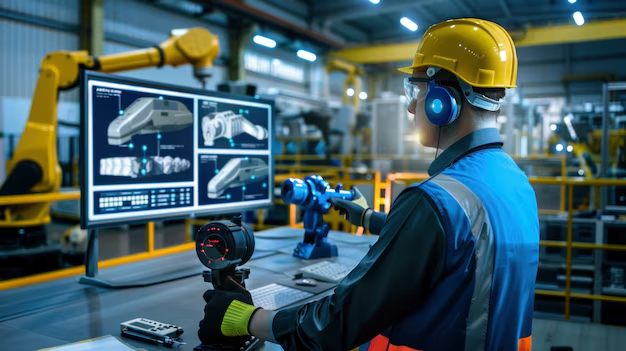Automation and control services have emerged as critical instruments for global industry transformation, increasing efficiency, productivity, and innovation. As technology advances, automation is becoming more integrated into a variety of industries, including manufacturing, energy, healthcare, and transportation. This blog delves into how automation and control services are altering industries, the advantages they provide, and the major technology driving this shift.
Understanding Automation and Control Services
Before delving into the implications of automation and control services for companies, it’s critical to grasp what these phrases mean.
Automation is the use of technology to perform activities with minimum human participation. It often includes computers, software, and robotics designed to perform repetitive or complicated tasks more effectively than people. In contrast, control services are systems that govern and monitor operations to ensure peak performance. They provide real-time data, control workflow, and react to changes or disturbances, ensuring that operations function efficiently.
Automation is transforming following key industries
Manufacturing
The industrial sector has likely seen the greatest effect of automation. Automation has enabled firms to simplify processes, decrease mistakes, and lower manufacturing costs. Assembly, material handling, and quality control are all frequent activities that robots and AI-powered devices perform. Because of automation, manufacturers can now work around the clock, which boosts productivity and efficiency.
Control systems monitor equipment performance, identify problems, and improve operations in real-time. Predictive maintenance technologies, for example, employ data analytics to forecast when a machine will break, allowing for preventative maintenance and reducing downtime.
Energy and Utility
Automation and control services have transformed the energy and utility industries, especially power production, distribution, and consumption. Automated control systems in power plants provide efficient energy production and distribution by monitoring important performance indicators such as temperature, pressure, and flow rates.
The integration of smart networks enables improved energy demand and supply management, decreasing waste and increasing sustainability. Automation also benefits renewable energy industries like wind and solar, which use control systems to manage fluctuating energy outputs and smoothly integrate them into the grid.
Healthcare
Automation and control services are revolutionizing healthcare by improving patient care, lowering costs, and increasing operational efficiency. Automated medical technologies, such as infusion pumps and robotic surgical systems, provide accurate treatments with little human error.
Hospitals employ automation to handle patient data, medicine distribution, and diagnostic processes. AI-powered systems can examine enormous databases of medical test results, allowing clinicians to make more accurate diagnoses. Automation also plays an important part in telemedicine, enabling clinicians to monitor and manage patient problems remotely.
Transportation & Logistics
Automation and control services are also transforming the transportation and logistics industries quickly. Autonomous trucks, drones, and automated warehouses are becoming more widespread, allowing businesses to improve their supply chains and shorten delivery times.
Major logistics corporations are already testing self-driving trucks and delivery robots to increase efficiency and minimize the need for human involvement in transportation. Warehouse automation involves robotic devices for picking, packaging, and shipping, which reduces human error and speeds up processes.
Automation is revolutionizing agriculture with smart farming approaches. Farmers may utilize drones, autonomous tractors, and precision farming equipment to monitor crop health, improve irrigation, and cut pesticide and fertilizer consumption.
Advantages of Automation and Control Services
Adoption of automation and control services provides several advantages across industries:
Improved efficiency and productivity
Automation enables continuous operation without weariness or mistakes, resulting in increased productivity and constant quality. Control systems optimize operations in real-time, hence increasing efficiency.
Cost Reduction
By automating repetitive or risky jobs, companies may cut labor expenses and human error. Automation also reduces energy use and material waste, further lowering expenses.
Enhanced Safety
Automation decreases the need for human workers in dangerous areas, hence increasing workplace safety. Control systems monitor equipment and processes to avoid accidents and ensure compliance with safety rules.
Scalability
Automated systems are readily scalable, enabling businesses to expand production capacity without incurring large expenditures or needing extra resources.
Real-time Monitoring and Data Analysis
Control systems give real-time data on equipment performance and process efficiency, allowing businesses to make informed choices and enhance overall operations.
Bottom Line
Automation and control services are altering industries by increasing efficiency, lowering costs, and enhancing safety standards. The integration of modern technologies such as AI, IoT, and robots enables organizations to innovate and remain competitive in an increasingly digital environment. Automation is transforming sectors such as manufacturing, energy, healthcare, and transportation, providing many advantages to both companies and consumers.
As technology advances, automation and control services will become increasingly important, creating new potential for innovation and development across all industries.

